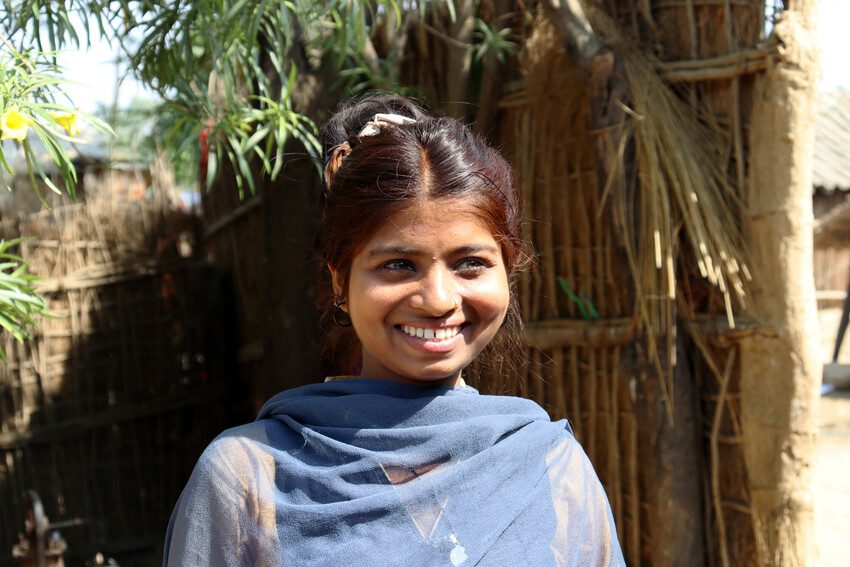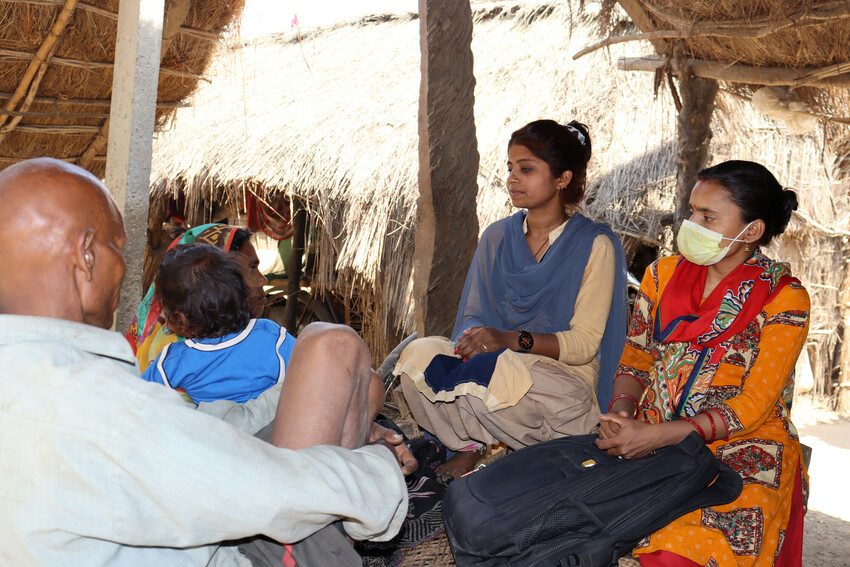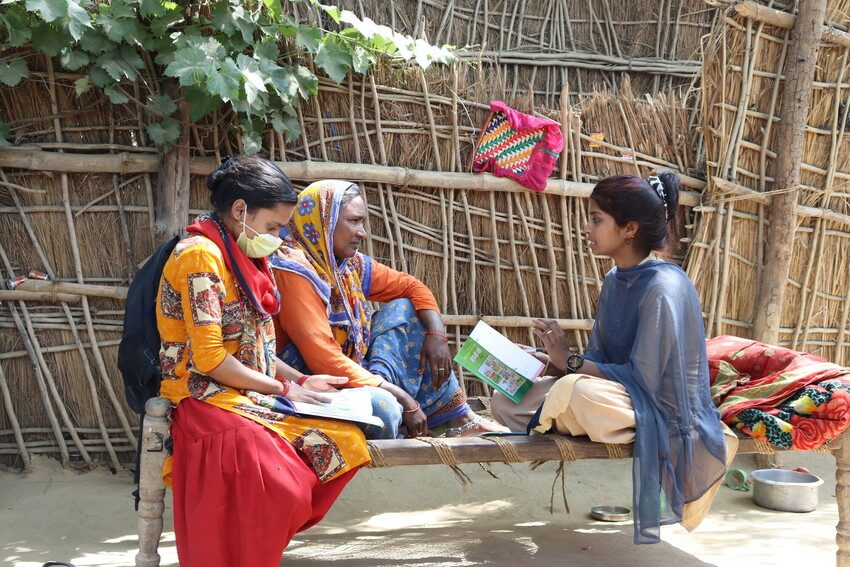“I did not stop” – One Nepali Girl’s Fight Against her own Child Marriage
17 January 2022<strong><span class="has-inline-color has-black-color">Punam was just 13 and stepping into adolescence when her parents married her off to a 17-year-old farmer. Now, 8 years later, she is an activist against child marriage.</span></strong>

Punam comes from a Madeshi community of Banke in Nepal that celebrates a ritual called Gauna. Marriages happen in two stages: a marriage ceremony takes place first, followed some years later by a ceremony – Gauna, marking the moment when the bride goes to live with her husband and in-laws. Children are often married before puberty, and the Gauna usually takes place after the child reaches puberty. In these situations, the first ceremony is not an engagement but marriage, and it can be just as difficult to dissolve as any other marriage.
At the time of her marriage, Punam was a brilliant student who feared for her educational prospects and life ahead.
“I was married and was waiting for my Gauna, and because of this, my childhood was ruined. And I hated it so much. I was married without my consent at 13,” she explained.
“…I was married without my consent at 13.”
Punam is the eldest sibling in a family of six, her mother works as a farmer and her father is a migrant worker. Family economic struggles and her fears towards her father made her unable to convince anyone to stop her child marriage.
Despite this, she proved resilient and would stitch clothes to earn money to continue her studies. She had not yet had her Gauna and was able to stay at the family home to continue her education and extracurricular activities.
As a married daughter, she had to tie her hair and cover it with a shawl. Whenever she went to social gatherings, people used to stare and gossip as her Gauna had not happened yet. The teasing and rejection from the community would continue as she studied instead of going to her husband’s house.
This would happen until the eighth grade, when her in-laws ordered for the Gauna. The stress impacted her studies and her grades faltered. When her Gauna finally happened, she was studying for her final exams. She had no support but was determined to finish her education.
She returned home and took herself to Nepalgunj, the capital of Banke, for coaching classes, completing her schooling with good grades. Yet, while waiting for her results, her resilience would be tested once more as her in-laws came to take her back to an unwanted married life.
Her passion for her own life and education saw her mother reach out and help: “I did not want to go to my in-laws, but they came to receive me. My mother consoled me saying she would come and take me after my results get published. Then I could be admitted to study higher education. I waited a month in my husband’s home and came back. I joined a college. I wanted to become a lab technician.”
Unfortunately, the economic situation of her parents postponed her desire to become a lab technician. However, during this time she was introduced to an “adolescent club” in her hometown, providing a release from her continuous struggles. Punam, 21, visits many households in her community to raise awareness about early child marriage

Initiated by Plan International Nepal in collaboration with a local NGO, the government and the SAC (Social Awareness Concerned Forum) Nepal, the club offers training, workshops, and information regarding child marriage, gender violence, and gender equality.
It provides a safe and secure place for Punam and other girls in similar situations to gather, share, support, and gain vital support and legal advice.
The programme would increase Punam’s confidence, self-esteem, and knowledge of her own rights as a woman. Her work with the club has led her to become the president, traveling throughout the region to other clubs to share her experiences and knowledge, helping to stop four child marriages.
“I am proud of myself as I am an advocate for ending child marriage.”
While the gossiping and teasing haven’t stopped in her village, her innate resolve and newfound knowledge to stand up against child marriage have given her more determination than ever, and a new dream.
“I never gave attention to those noises as I am determined about my dream to become a teacher. The only motive is to teach children from their young age that child marriage is a crime, and they should reject such proposals in early age.”
Although still married to the farmer, it has been eight years since her marriage, and she has returned seldomly to her in-laws. Her father paid for her twelfth-grade admission fees, so she has been able to limit the visits as much as possible.
“They do not care about me and the progress I am making. It has been eight years since my marriage. In between, I’ve only stayed 2-3 months at my in-laws. I hope I do not have to return to his home. I want to stay free. Child marriage ruined my childhood. But I did not stop.”

Punam is one of many girls and young women in the Asia-Pacific regions whose resilience has been aided by access to support and information about gender violence. By entering programmes like the adolescent club in Punam’s hometown, girls and young women can be given the platform to demonstrate leadership capabilities in the fight against gender inequality.
2021 Asia-Pacific Girls Report: Voice, Choice, and Power
Plan International’s 2021 Asia-Pacific Girls Report reveals how girl activists are becoming a necessary force for gender equality in the region. The report, presenting the region’s state of girls’ leadership, finds that girls and young women are working tirelessly to ensure gender-transformative change and social inclusion. Yet, environments in some countries are more enabling than others. Across the region, social and cultural norms continue to contribute to gender inequality and the lack of opportunity. To find out more about the findings, check out the report here.
Plan International believes in the importance of girl-led leadership in the battle for gender equality. To do this, more needs to be done to create a safe, inclusive and open space for them to use their voice, spread their message of ensuring equal rights for all, and develop their collective and individual power.
Categories: Campaigns, Protection from violence, Sexual and reproductive health and rights, Youth empowerment



